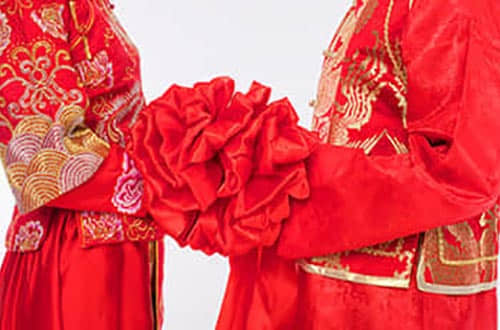Privacy and Personal Space in China

When you visit China you will find that it is different from anything else you are used to. And that is the main reason why you want to go there, isn’t it?
Body language sometimes speaks louder than words, and often causes offense before anything is said. In English we use expressions such as “in your face” to suggest just how uncomfortable it can be when someone is too close, encroaching on what we feel is our personal space. It may be hard to appreciate that people in other cultures, such as the Chinese, might not feel the same way. Other cultures don’t have the same sense of entitlement (to space) as westerners do.
What is personal space, and what is your comfort zone?

When two people are having a conversation, they leave a comfortable space between them. And when people are standing in line, each one keeps a comfortable space between themselves and the person in front. The size of the space which people leave between them depends on their cultural background. In some cultures, there are situations where the space is so small that there is physical contact.
If you haven’t mixed with others in cross-cultural situations before, then your first encounter with people who appreciate a different personal space from yours can make you quite uncomfortable. Suddenly you are outside of your “comfort zone”.
Proxemics, the study of how human beings react and behave with regard to personal space, tell us that cultures all vary in their measurement of personal space, but some of them will make you more uncomfortable than others. Likely as not, the Chinese version of personal space will be uncomfortable for you.
People have speculated about why personal space in China seems all but non-existent, and usually come up with the fairly obvious suggestion that it would be a natural outcome of the population density. As well as that, historically the Chinese people lived in communes where individual space had little meaning.
Whatever the underlying reasons, the fact remains that Chinese people are unruffled by closeness to others, and there can be a certain amount of quite acceptable pushing and shoving in public.
What is considered good manners for Chinese people?

Acting appropriately toward others and treating them with respect is part of the Chinese culture, as in any culture. People don’t seem bothered by the closeness of others when traveling on public transport, often packed in like sardines in a can. Business men remove their suits and walk around in long underwear in the shared sleeping compartment in a train. People walking on the street might walk straight at you, cut you off by crossing your path, or even bump into you. They will also stand or walk very close behind you, and if they are curious enough they may even read over your shoulder if you are texting.
Some Westerners feel uncomfortable when they see young Chinese women walking along holding hands, or young men with their arms around each other, but in China it is normal and harmless affectionate behavior. On the other hand, it is not okay for you to get all touchy-feely with Chinese people until you have an appropriate relationship with someone, and by then you will probably know just how you should behave towards them.
How should you behave when relating to Chinese people?
There are a lot of formalized ways to behave when relating to different groups of Chinese people, and there is little chance you will understand or remember them all before your first time in China. Here are just a few simple things you should observe that may be different from what you are used to at home.
- Don’t touch, hug, back-slap, put your arm around individuals. But when someone stands really close to talk to you, relax.
- Don’t point with your index finger, use your whole hand.
- Don’t beckon someone with your index finger. Use your whole hand, fingers pointing down.
- Don’t snap your fingers. Don’t whistle.
Firstly, the simplest solution is to be as observant as you can, and behave as you see others behave. Secondly, they will have noticed that you are foreign, and they will expect you to have some different customs – just don’t mind that they stare at you, and try not to do anything offensive. Thirdly, if you have a local guide, they can warn and advise you how to behave, and help you to notice things that you might have otherwise missed.

 Chinese Love and Marriage
Chinese Love and Marriage  Understanding Chinese People and Culture
Understanding Chinese People and Culture  Famous Chinese Women in History
Famous Chinese Women in History  Top 10 Greatest Emperors
Top 10 Greatest Emperors